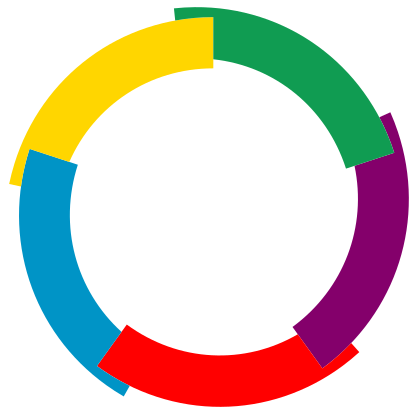Overview Information
Organisation Internationale de la Francophonie (OIF)

1. Basic information
- Date of creation: 20 March 1970.
- Founders: Léopold Sédar Senghor (former President of Senegal), Habib Bourguiba (former President of Tunisia), Hamani Diori (former President of Niger), and His Majesty the late King Father Norodom Sihanouk.
- Headquarter: Paris (France).
- Members: 93 Member States and Governments (56 full Members, 5 associate members and 32 observers).
-
Objectives: Its mission is to build the active solidarity between its member states and governments, to contribute improving the standard of living of its populations. It supports its members in the elaboration or consolidation of their politics and carries out activities of international politics and multilateral cooperation, in accordance with the four major missions drawn up by the Francophonie Summit :
- Promote the French language and the cultural and linguistic diversity
- Promote Peace, Democracy and Human Rights
- Support Education, Formation, Higher education and Research
- Develop cooperation for sustainable development
- The Estimation of francophones in 2022: About 321 million people. In South-East Asia: Cambodia – 463,000 (3%), Laos – 204,000 (3%), Vietnam – 693,000 (1%).
2. Within the framework of OIF
- The Secretary General of OIF is the top responsible for the organization. Madame Louise MUSHIKIWABO was appointed to this position by the Francophonie Summit in 2018 in Erevan (Armenia) and has held this position since January 2019.
- The Administrator is appointed by the Secretary General and is in charge of executing and managing the cooperation of OIF. Mrs. Caroline St-Hilaire has held this position since 21 March 2023.
- The OIF is placed under the authority of 3 political entities: The Summit (supreme organ, meets every two years), the Francophonie Ministerial Conference (CMF), and the Permanent Council of la Francophonie (CPF).
-
The OIF has:
-
4 permanent representatives:
- in Addis Ababa, to the African Union and the United Nations Economic Commission for Africa
- in Brussels, with the European Union
- in New York and Geneva, to the United Nations
-
8 regional offices:
- in Lomé (Togo) for West Africa
- in Libreville (Gabon) for Central Africa
- in Hanoi (Vietnam) for the Asia-Pacific Region
- in Port-au-Prince (Haiti) for the Caribbean and Latin America
- in Bucharest (Romania) for Central and Eastern Europe
- in Antananarivo (Madagascar) for the Indian Ocean
- in Tunis (Tunisia) for North Africa
- in Beirut (Lebanon) for the Middle East
-
4 permanent representatives:
3. Along with OIF
- The OIF acts in synergy with the Parliamentary Assembly of la Francophonie (APF), the four specialized operators (AUF, TV5, AIMF, University of Senghor of Alexandria), and with the two permanent ministerial conferences: Confémen and Conféjes.
4. Cambodia and OIF
- In November 1991: becomes the observer member at the 4th Francophonie Summit in Chaillot (Paris), France.
- In October 1993: becomes a full member at the 5th Francophonie Summit in Grand-Baie (Mauritius).
5. The upcoming instances of OIF
- The 46th Ministerial Conference of La Francophonie (CMF) will be held in 2025 in Kigali, Rwanda.
- The 20th Summit of La Francophonie will be held in 2026 in Cambodia.
- For more information, please visit the website: francophonie.org
